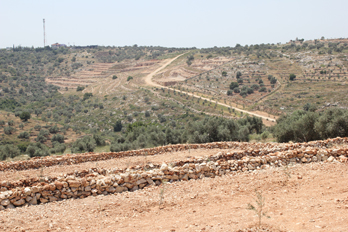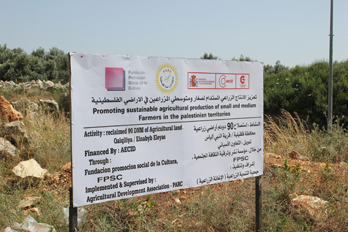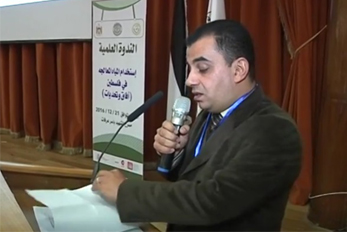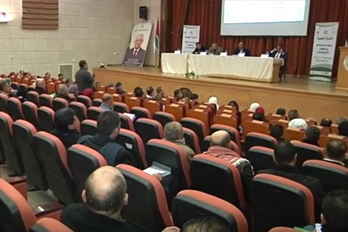
Research and work with sewage is a topical issue in countries where the human right to water is not a reality. In Palestine, a number of circumstances linked to the climate, the regime of scarce precipitation and the high extraction of water resources from which Gaza and the West Bank should be supplied, make this right not accessible, and several initiatives have been carried out for a long time to amend this aspect.

FPSC has long experience working in the area, supporting its local partners to contribute to effective access to water especially that used for rural development. In this context, work is underway on different projects, in particular the agreement developed jointly with PARC and financed by AECID: “Sustainable and equitable rural development in the West Bank including the start and use of responsible management of land and water resources for small and medium farmers”.
 One of the activities carried out at the end of the year has been the holding of a seminar in which local experts from the sector have participated, in total, nine presentations, and 150 people have participated: representatives of interested municipalities as well as other associations of the Civil society and representatives of different ministries such as Tourism and Environmental Quality Authority, as well as universities. This diversity of actors has meant a rich interchange of experiences from an interdisciplinary point of view, as well as being a clear example of the interest that this theme arouses in the region.
One of the activities carried out at the end of the year has been the holding of a seminar in which local experts from the sector have participated, in total, nine presentations, and 150 people have participated: representatives of interested municipalities as well as other associations of the Civil society and representatives of different ministries such as Tourism and Environmental Quality Authority, as well as universities. This diversity of actors has meant a rich interchange of experiences from an interdisciplinary point of view, as well as being a clear example of the interest that this theme arouses in the region.
 Palestine is an eminently rural region with limited access to water resources. For this reason, wastewater treatment is a priority for the authorities, since more water available for irrigation, increased crop yields and considerable improvement of the environment, reducing the direct discharge of untreated water to the sea or open areas.
Palestine is an eminently rural region with limited access to water resources. For this reason, wastewater treatment is a priority for the authorities, since more water available for irrigation, increased crop yields and considerable improvement of the environment, reducing the direct discharge of untreated water to the sea or open areas.

